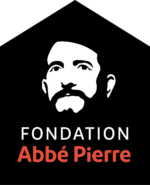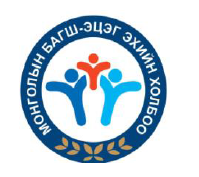Access to sanitation and hygiene in a rural school and boarding school, Bayankhangai
State : Completed | Number of beneficiaries : 269 children
Duration : 2018/2019, 12 months
Location : Bayankhangai District, Tuv District (about 120 km from Ulaanbaatar), Mongolia


Local partner
Parents Teachers Association (PTA) was created in 2014 at the initiative of two former employees of the NGO Save The Children-Japan following a strong demand from parents, teachers and educational institutions to work for improvement of the quality of education and infrastructure in primary and nursery schools. The NGO aims to improve the education of children, through the improvement of the education system, the encouragement of civic engagement and the participation of parents.
Its mission is to make every child in Mongolia an active and independent citizen, investing parents in this mission. These include their children, listen to them, accompany them, support them and set an example to follow.
The association works with three target audiences: parents of children with disabilities, ethnic minority populations (such as Kazakhs in the west of the country) and nomadic families. These three audiences are very vulnerable to poverty and lack access to basic services.
The association aims to achieve its objectives through three main types of activities:
– The training of parents to positive education
– Raising parents’ and children’s awareness to engage them in the life of their community and encourage good governance
– Improving the infrastructure of kindergartens and primary schools.
The problem
The Bayankhangai School is home to 220 students aged 6 to 15 during the school year from September to June. Thus, in 10 months, the school year in Mongolia covers three seasons (autumn, winter and spring), during which temperatures range from + 15 ° C to -30 ° C. However, the sanitary facilities of the school are not at all adapted to these conditions. The school previously had an in-house water and sanitation system (toilets and washbasins for the school, and toilets, washbasins and showers at the school), but the drainage system was damaged in the past. Due to climatic conditions, the use of these health infrastructures is now impossible. Due to lack of budget, repairs could not be made, parts were used to store equipment and facilities deteriorated. Rudimentary latrines were built outdoors, about 50 meters from the buildings housing the school and boarding school. These facilities pose many problems: access is difficult, especially in winter and at night, they are mixed and are not suitable for children under 10 years. The situation is very worrying in terms of hygiene and health: these facilities have only latrines, so there is no shower for 49 residents, and there are no washbasins, water is collected manually at a well.

Objectives/Activities carried out
The overall objective of the project is: The living conditions of the most vulnerable populations in Mongolia are improved through an improvement of their housing conditions. The specific goal is: 220 children attending the school and the Bayankhangai boarding school improve their hygiene practices at the end of the project.
- Construction of child-friendly sanitary facilities (“child-friendly” model) and an environmentally sound sanitation system
- Training of children, parents and school staff to good hygiene and health practices
- Promotion at the local and national levels of the child-friendly toilet model and the improvement of sanitary conditions in schools
Beneficiaries
Direct beneficiaries:
-220 students of the school
-220 parents of pupils
-35 staff of the school
-49 student residents
Indirect Beneficiaries:
The Mongolian population through the promotion of the concept of “Child Friendly Toilet” through the media.
